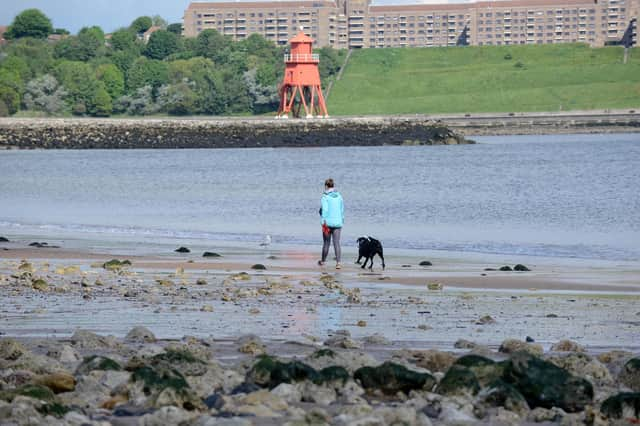Sea grass and oyster reefs to help prevent flooding and coastal erosion in South Tyneside as part of £150million project


A whole host of innovative technologies involving flood alert apps and "sponge" road surfaces will be deployed across England as part of a new project aiming.
The Department for Environment, Food and Rural Affairs (Defra) has announced a £150 million funding package to be shared between 25 local schemes aiming to improve waterway defences and coastal resilience.
Advertisement
Hide AdAdvertisement
Hide AdThis includes restoring sub-tidal habitats like kelp beds, oyster reefs and sea grass near South Tyneside
It is part of the Government's new Flood and Coastal Resilience Innovation Programme - an effort to develop and test new approaches to tackling coastal erosion and mainland flooding - and will be managed by the Environment Agency.
Emma Howard Boyd, chair of the Environment Agency, said the project is "extremely exciting" and could be replicated on a larger scale around the world if successful.
"The innovation programme is extremely exciting as it begins to put new aspects of the national flood and coastal erosion risk strategy to the test,” she said.
Advertisement
Hide AdAdvertisement
Hide Ad"What we learn will inform our approach to the climate crisis in the coming decades and it's something to tell our international partners about at Cop26.
"I'm particularly interested in the projects that test the ability of nature-based projects to generate revenue.
"If successful, these could be scaled up by private finance around the world, helping to prepare for climate shocks, restore nature and create jobs."
A wide range of approaches tailored to local communities will be trialled.
Advertisement
Hide AdAdvertisement
Hide AdArtificial intelligence and new sensor technology to detect rising water levels will be used in Northumberland, and in Cornwall sand dunes will be protected and saltmarshes restored.
In Slough, the Chinese "sponge city" concept will be deployed, which is the use of permeable roads to soak up surface water, along with natural vegetation to improve drainage.
Environment minister Rebecca Pow said the Government has pledged to invest £5.2billion in 2,000 new flood and coastal defences over the next six years, adding that "long-term approaches to improve communities' resilience" is vital in the face of climate change.
She said: "These 25 projects will not only help to inform future approaches to prepare communities for flooding and coastal change across the country, but also help reinforce the UK's position as a world leader in innovation and new technology as we build back better."
Advertisement
Hide AdAdvertisement
Hide AdSupport your Gazette and become a subscriber today. Enjoy unlimited access to local news, the latest football stories and new puzzles every day. With a digital subscription, you can see fewer ads, enjoy faster load times, and get access to exclusive newsletters and content. Click here to subscribe.